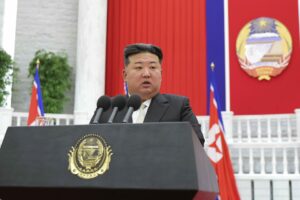Investing.com – South Korea’s central bank held interest rates on Thursday after steadily raising them for over a year, as the country faces mounting economic risks from high inflation, weakened exports, and a slowdown in the housing market.
The Bank of Korea (BOK) held interest rates at 3.50%, as widely expected, after raising interest rates by a cumulative 300 basis points over the past 18 months. The BOK was among the first global central banks to begin raising interest rates in the aftermath of the COVID-19 pandemic.
Inflation in the country surged over the past year, reaching its highest level since the 1998 Asian financial crisis in August. While price pressures have since retreated, they still remain at relatively high levels.
Worsening economic conditions in South Korea limited the economic headroom afforded to the BOK to keep raising interest rates. A slowdown in China, the country’s biggest trading partner, hit the Korean economy particularly hard as demand for exports slowed.
Weakening demand for the country’s key chip exports also weighed, as cooling economic growth across the globe saw a slowdown in capital spending, especially on technology.
The BOK recently warned that an economic recovery in China will provide a limited boost to the South Korean economy, given that Chinese investment in the country is likely to slow down. Asia’s largest economy is set for a recovery this year after it relaxed most anti-COVID restrictions and shored up government spending.
The warning also comes amid a severe downturn in the South Korean economy. The country’s fourth-quarter GDP shrank more than expected, with consumer spending under increased pressure from high inflation.
Rising interest rates also weighed heavily on the country’s housing market, as consumers grew more hesitant to take mortgages at higher rates.
The South Korean economy now faces a difficult road to reaching pre-pandemic levels, with the BOK’s pause in rate hikes marking a step towards fostering economic growth.
Local stocks rose sharply after the decision, with the KOSPI index rallying 1.1%. The South Korean won added 0.1%.
Source : Investing










